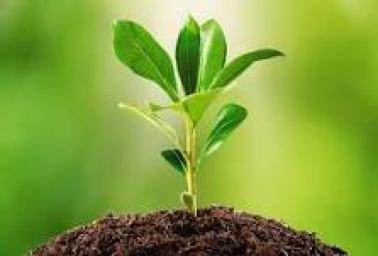I Like Plants
Even when I was very young, I always loved plants. When we walked to school, I would look at the different plants. I would make up names for them. I would draw pictures of them. When my teacher asked us to draw a picture of anything we liked, I always drew pictures of plants.
When I got to high school, I took a course that was all about plants. Most students took the course in biology. But I took the course on plants. We went into the park to identify different species. It was amazing. I found out that there were at least 27 different kinds of plants in our neighborhood park. There were also about12 different kinds of trees. Some were deciduous. We were there in spring, so they had their leaves.
I learned that weeds are not really bad plants. They are interlopers. They come from another environment. Somehow they get to the new environment. It could be that animals bring them. The animals might pick up the seeds on their fur and carry them to the new habitat. Then they fall off and start to grow.
When I went to college, I knew that I wanted to study plants. I wanted to be a plant scientist. I wanted to be a botanist. I took classes in math, English, and history. They were good classes. But it was the science classes I loved.
Now I teach at a college. I teach about plant life. I explain how fertilizers can help plants grow but also can destroy the balance of nature. I teach about helpful insects. One of the most helpful insects for plants is the ladybug. Ladybugs are small insects that eat aphids. They can protect plants by eating the aphids that would eat the plants' leaves. There are about 5,000 kinds of ladybugs. In winter the ladybug hibernates. Then in spring it comes back out and starts to protect the plants again. Several states have named the ladybug their state insect. I teach students ways to help the environment like that.
I teach about ecology, too. I teach how important decisions are. I explain that if you introduce a non-native herbivore into an environment it can cause problems. For example, in Australia long ago people brought rabbits. The rabbits ate so many plants that they caused a problem. This invasive species ate plants that other animals depended on. The rabbits even killed trees. They ate the bark off the trees, and the trees died. Some people think that Australia's desert has expanded significantly because of the introduction of the rabbits. They say it is a
very big problem. If they had understood ecology, they might not have brought those rabbits. I hope my students take what they learn and make good choices for the environment.
I keep learning more about plants and the animals that depend on them, and I teach students what I learn. I learn from my research on the Internet now as well as going to the park and studying the plants in my community. I share what I learn when I teach, and I write books that help people learn about nature.
